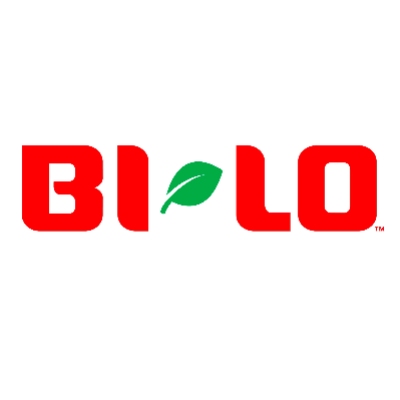How a Southeastern Grocery Store Chain Used Automation to Become More Efficient
 The Company
The Company
Originally founded in 1961, BI-LO grocery stores and in-store pharmacies serve communities throughout three southeastern states – Georgia, North Carolina and South Carolina. BI-LO, LLC is a subsidiary of Southeastern Grocers, which is one of the largest supermarket chains based in the Southeast.
The Challenge
Two big grocery store chains, Winn-Dixie and BI-LO, merged to form a new company called BI-LO Holdings. The organization continued to expand with additional acquisitions and mergers until their workforce numbers peaked at over 72,000 active associates.
It was during this merger that the need for an Enterprise Content Management (ECM) solution started to come to light. In terms of document management, Winn-Dixie was a pure paper-storage company, while BI-LO had digital storage for job applications and a few other Human Resources-related personnel documents.
During this time of growth, the newly formed company (whom we will refer to as BI-LO throughout the rest of this case study) had several human resources employees spending months at-a-time searching through warehouses of boxes for HR-related files. They were using dozens of applications and systems to find single records at-a-time. Oftentimes, after exhausting the search, employees would come up empty handed, not because the files ceased to exist, but because the research process dealt with human error and overall, it was an arduous undertaking.
The new process exposed the need for business process automation solutions that would free employees from these routine, data-driven processes and help BI-LO to more easily remain compliant with industry regulations.
“The goal of automation has never been, even to this day, about reducing a headcount or labor,” commented the Manager, HR Operations & Automation for Southeastern Grocers. “Since our people are our greatest asset, we wanted to find ways to free their time so that they could become engaged in more fulfilling work. If our people are happy, then the company will be stronger in the future.”
The Solution
OnBase to the Rescue
The approach BI-LO project leads used was to first identify all the document types needing to be centrally stored and determine their retention periods for compliance. The content services platform they would use for this central access was OnBase.
Once these were identified, BI-LO then identified legacy systems that could be decommissioned and have their records pushed into OnBase as a central repository.
Lastly, they identified a critical need to begin digitizing the paper documents that were in cold storage with Iron Mountain.
The first major integration BI-LO project leads completed was between OnBase and iCIMS. This paved the way for human resources to track applicants and automate the hiring and onboarding processes.
BI-LO worked very closely with KeyMark to design, test and implement a solution which systematically gathered all records from iCIMS on a nightly basis through a custom-built API. They then indexed those documents and stored them in OnBase.
The solution utilizes OnBase tools, such as:
- Document Import Processor (DIP)
- Import File Pre-processors
- OnBase Studio for workflow and lifecycle designs and management
- Auto-Fill Keyword sets (AFKWs)
After completing this first major integration, BI-LO project leads continued by decommissioning one of the legacy databases that had been previously used to hold applications, TALEO. The TALEO migration was completed in a couple short months. It used AFKWs, PDF Import Processors and DIP to migrate Applications, resumes and cover letters into OnBase. This data was from potential candidates and associates that spanned approximately 3 years.
The next legacy system to be decommissioned was BI-LO’s IBM Content Manager. Using OCR for AnyDoc, BI-LO had been storing all HR Personnel related documents in the IBM database for over 7 years.
Once again, working very closely with KeyMark, BI-LO project leads designed, tested and implemented a systematic export/import process to migrate the documents from IBM to OnBase. Using AFKWs, DIP and preprocessors, every document within IBM was successfully migrated into OnBase, indexed and mapped to the correct, standard document types. What’s more impressive is that the team successfully migrated this data, which had no standard naming convention or document types.
How BI-LO Leveraged RPA
Once OnBase was in place, BI-LO once again engaged with KeyMark to bring the very first robotic process automation (RPA) solution to their company.
The project team began by identifying a single process in their Human Resources department. They created an RPA digital worker named “SAM” (System Automation Module). During the next three years, BI-LO has grown their RPA solution to automate approximately 90% of the manual processes previously conducted by the Hiring team. They have also grown their digital workforce to include:
- “PIDA” (People Insights Data Automation)
- “CHET” (Core HR Essential Transactions)
- “OpRAH” (Ops Reporting Automation Hub)
- “TOM” (Training Optimization Module)
- “TRINA” (Total Rewards Intelligent Node Automation)
- “ISAAC” (Information Solutions Applied Automation Component).
The Results
Currently, the greatest impact to productivity BI-LO has seen with their automation solution is within the Hiring Team.
“We began with the most complex part of our hiring process and worked with our partners at KeyMark to build out the POC, using this process,” said BI-LO’s project lead. “Once that was proven a success, we moved forward with the automation of nine more portions of the hiring process. This ramp-up has allowed for our talented resources on the hiring team to more actively support the hiring needs of the entire organization. The hiring process is now the most efficient it has been in 10 years.”
Rather than having talented and intelligent people spending time on tedious processes, they are now focused on strategic initiatives. These employees are augmented with exception-handling-based work efforts for items not able to be processed by a digital worker.
BI-LO team members have reported a noticeable and immediate impact. These employees also report finding more enjoyment, satisfaction, and fulfillment in their roles on the team. This is because they are now able to work on a wider variety of tasks that require deeper thought and collaboration with each other.
After implementing an automation solution, BI-LO has seen:
- 90% Automated Hiring processes – Implementation to date savings:
- 3,115.56 labor hours
- $53,494.14 labor cost avoidance
- 43,462 text messages sent
- 18,179 background checks initiated
- 36,872 new hires
This type of automation will keep BI-LO and its employees automating for years to come.
About Southeastern Grocers
Southeastern Grocers, Inc. (SEG), parent company and home of BI-LO, Fresco y Más, Harveys Supermarket and Winn-Dixie grocery stores, is one of the largest conventional supermarket companies in the U.S. SEG grocery stores, liquor stores and in-store pharmacies serve communities throughout the seven southeastern states of Alabama, Florida, Georgia, Louisiana, Mississippi, North Carolina and South Carolina. BI-LO, Fresco y Más, Harveys Supermarket and Winn-Dixie are well-known and well-respected regional brands with deep heritages, strong neighborhood ties, proud histories of giving back, talented and caring associates and strong commitments to providing the best possible quality and value to customers. For more information, visit BI-LO.com, frescoymas.com, harveyssupermarkets.com and winndixie.com.
